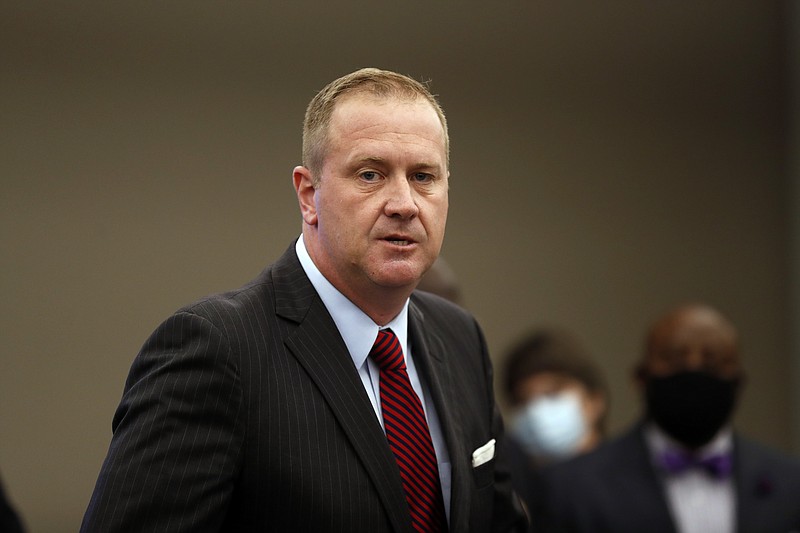Missouri Attorney General Eric Schmitt, along with 21 other attorneys general, is again at odds with the federal government regarding its guidance about the enforcement of Title IX in schools and whether it extends to gender discrimination on the basis of sexual orientation and gender identity.
Last week, Schmitt and about 20 other attorneys general obtained a preliminary injunction to stop federal guidance that would include "gender identity" in the sex discrimination prohibitions contained in Title VII and Title IX.
On Tuesday, a group of attorneys general containing many of the same members filed a lawsuit and a preliminary injunction against the U.S. Department of Agriculture's guidance including discrimination based on sexual orientation and gender identity as sex discrimination.
In last week's injunction, the states argued the guidance deviated from Title IX's text and prevented some attorneys general from enforcing their own state laws.
Referencing a Supreme Court ruling in Bostock v. Clayton County that determined Title VII would prohibit an employer from firing someone for being gay or transgender, President Biden issued an executive order in January 2021 intended to prevent discrimination "on the Basis of Gender Identity or Sexual Orientation."
Following the executive order, the U.S. Department of Education and the Equal Employment Opportunity Commission issued guidance documents interpreting Title IX and Title VII to include protections for gender identity, which Schmitt challenged, along with other states, in last week's successful preliminary injunction. The current lawsuit challenges similar guidelines issued by the USDA's Food and Nutrition Services.
That guidance requires agencies that "receive funds from FNS must investigate allegations of discrimination based on gender identity or sexual orientation. Those organizations must also update their non-discrimination policies and signage to include prohibitions against discrimination based on gender identity and sexual orientation."
The complaint filed by the 22 states Tuesday says "the States do not deny benefits based on a household member's sexual orientation or gender identity. But the States do challenge the unlawful and unnecessary new obligations and liabilities that the Memoranda and Final Rule attempt to impose -- obligations that apparently stretch as far as ending sex-separated living facilities and athletics and mandating the use of biologically inaccurate preferred pronouns."
The states also claim if they were to not accept the guidance, they could lose "significant federal funds from the USDA."
In the complaint, plaintiff states say the department's guidance was "overreach," citing the agency's directions to "State-level SNAP administrators -- which include public primary schools, secondary schools, and universities" to update their documents with a nondiscrimination statement that includes gender identity and sexual orientation.
After the injunction granted last week, the Department of Education and EEOC are "restrained from implementing" their interpretation documents against the states that called for the injunction, including Missouri. That injunction remains in place until the case is resolved or the court says otherwise.
These legal battles may have implications for local Missouri school districts just weeks away from a new school year.
The Blair Oaks Board of Education is set to review a policy regarding transgender students at its upcoming August board meeting after the policy garnered both community support and criticism.
Board Policy 2115 allows transgender students to choose a name and pronoun by which to be identified; dress according to their gender identity; and use restrooms that are gender-neutral, aligned with their "biological sex" or aligned with their "self-identified gender."
During the recent public comment meeting on the policy, the district's lawyer outlined cases related to the policy, including Bostock v. Clayton County.
Blair Oaks School Board President Jason Paulsmeyer said last week he was following the injunction in the case between the attorneys general and the education department and EEOC. He said it "highlights the difficult circumstances" boards face as they try to make decisions that comply with federal and state law that can be "rapidly evolving."

